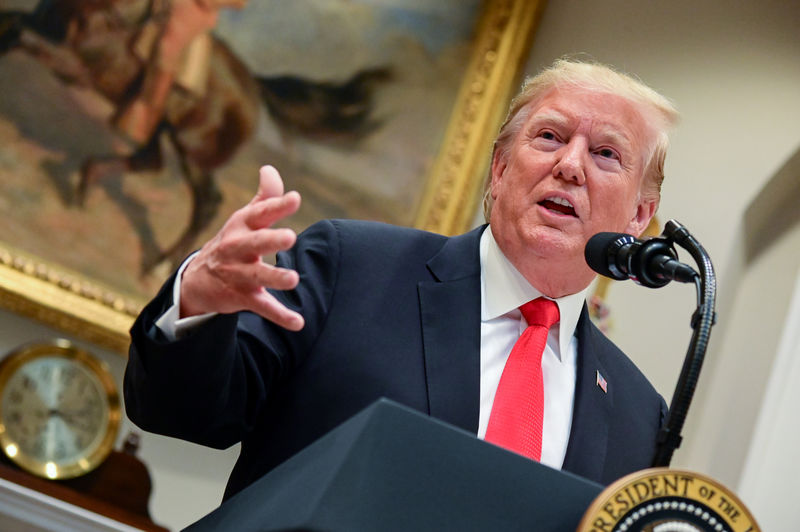By Saqib Iqbal Ahmed
NEW YORK (Reuters) - Traders know that when President Donald Trump tweets he can rock financial markets, often in unpredictable ways, but analysts at JP Morgan (N:JPM) have now quantified the impact of his tweets, at least on the U.S. interest rates market.
Trump's tweets, which have in recent months veered toward market-sensitive topics such as trade and monetary policy, have increasingly moved U.S. rates markets, analyst Munier Salem said in a note on Friday.
In the report, which runs well over 4,000 words, J.P. Morgan analysts use machine learning techniques and their own volatility model to show how the president's 280-character missives served to raise investors' expectations for future moves in the U.S. rates market.
While the direction of price moves and their lasting power may be uncertain, Trump's tweets often spark a sharp reaction across asset classes.
JP Morgan's newly built "Volfefe" index - a nod to "covfefe," the mysterious word coined by Trump in an unfinished 2017 tweet - analyzes a rolling sample of recent tweets to judge how much effect the president’s remarks have had on volatility.
The index can explain a measurable fraction of moves in the market's forecast of likely movement in rates, particularly the shorter duration 2-year and 5-year rates, the analysts said.
Trump's most market-moving tweets dwell on trade, and, to a lesser extent, monetary policy, with the words "China," "billion," "products," "dollars," "tariffs" and "trade" making the top list, the JP Morgan analysis found.
To be sure, while market-moving tweets may be on the rise, in recent months, these tweets have garnered fewer likes and retweets than other contemporaneous remarks, the analysts found.
Analysts at JP Morgan noted that while their current analysis was limited to U.S. interest rates, such an exercise was easily transferable to equity or currency markets.
Separately, analysts at Citigroup (N:C) found that a wide range of currency pairs logged higher-than-expected volatility within a one-hour window after a Trump tweet.

The U.S. dollar - whose recent strength against major currencies has drawn much of the president's ire - weakening against the euro and the Japanese yen is the most pronounced reaction to the president's tweets about the greenback, analysts at Citigroup said in a Friday note.